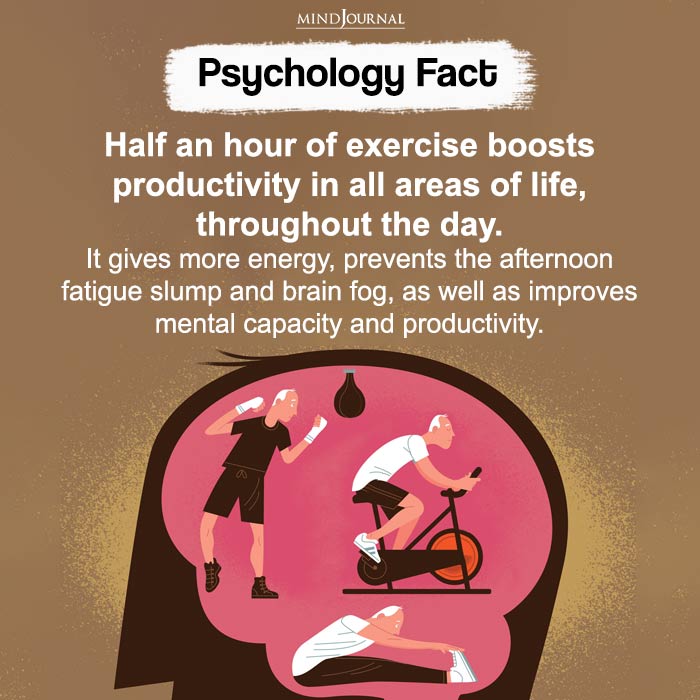Are you someone who just doesn’t find the time to work out on weekdays? Is this leading to you feeling concerned about your health? Well, as reported by NBC News, if you can squeeze in a 150-minute good heart workout over the weekend, you can still be healthier than most people out there!
A new study published in JAMA found that cramming all of one’s weekly exercise or a good heart workout into one or two days may be just as beneficial for heart health as spreading it out over several days.
Related: 7 Ways Hiking Benefits Your Body, Mind, and Spirit
Is It Sufficient To Just Workout Over The Weekend?
Conducted by Harvard researchers, the study used data from the UK Biobank, a database of 502,629 participants aged 40-69 who were enrolled between 2006 and 2010. A subset of the participants agreed to wear wrist-mounted accelerometers, which measure physical activity 24 hours a day.
The researchers then focused on 89,573 participants who wore the accelerometers for a week, the majority of whom were followed for 6.3 years. The study found that those who squeezed in a workout over the weekend had a 27% lower risk of heart attack and a 38% lower risk of heart failure compared to inactive individuals, while those who exercised regularly throughout the week saw a 35% reduction in heart attack risk and a 36% reduction in heart failure risk.
The study’s co-author, Dr. Patrick Ellinor, acting chief of cardiology at Massachusetts General Hospital and a professor of medicine at the Harvard Medical School, said that the goal is to get 150 minutes of moderate to vigorous activity per week, however, you get there.

Are There Any Drawbacks Just Working Out In The Weekend?
One concern with cramming an intense workout over the weekend is the higher likelihood of injury reported in some studies of weekend warriors. However, experts say that people who are careful to build up to an exercise program and who properly warm up and cool down can avoid such injuries.
Keith Diaz, an exercise physiologist and an associate professor of behavioral medicine at the Columbia University Vagelos College of Physicians and Surgeons said that the biggest concern is overuse injuries. “You can’t go from zero to 60 in two days. There are plenty of weekend warriors with no injuries but their bodies have acclimated to it,” he said.
Diaz added that the type of activity you pick is also important and that low-impact activities like swimming and biking are a better choice because they’re less likely to damage joints.
Furthermore, according to Diaz, because the adult body starts to lose condition after three days of inactivity, limiting workouts to the weekend won’t be the path to peak physical performance. “You’re constantly fighting the body’s tendency to go back to the disuse state,” he explained.
The study’s co-author, Dr. John McPherson, a cardiologist, and professor of medicine at the Vanderbilt University Medical Center in Nashville, said that people should get 150 minutes of moderate to vigorous activity each week, “however they can get it.” “It can be bunched into two days or it can be 25 to 30 minutes every day,” he said. “What’s really important is maintaining the 150 minutes a week.”
Glenn Gaesser, a professor of exercise physiology in the College of Health Solutions at Arizona State University, said that the new study offers good news. “It really didn’t matter how people sliced up exercise during the week so long as they got at least the minimum amount of moderate to vigorous activity,” he said.
For people concerned that only working out in the weekend might raise their risk of injury, previous research shows that’s mostly from contact sports, said Gaesser, who was not involved with the new research. “The vast majority are doing typical cardiovascular activities, such as walking, cycling, and so forth. Those who are participating in contact games are more likely to get injured.”
Related: 25+ Exercises To Do In The Office To Stay Fit And Healthy
Dr. Gregory Katz, a cardiologist at NYU Langone Heart and an assistant professor of medicine at the NYU Grossman School of Medicine, said that to avoid injuries from long workouts, people should pay attention to what their body is telling them. “Don’t ignore that nagging ache,” he said. “Does this feel like the type of strain you should be putting on your body or something that might be harmful?”
What do you personally prefer? Do you prefer working out 5 days a week for 20-30 minutes? Or do you prefer squeezing in a good heart workout over the weekend? Let us know your thoughts in the comments down below!









Leave a Reply
You must be logged in to post a comment.